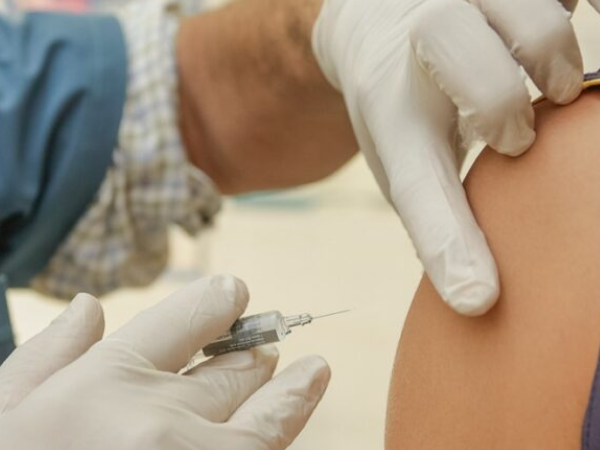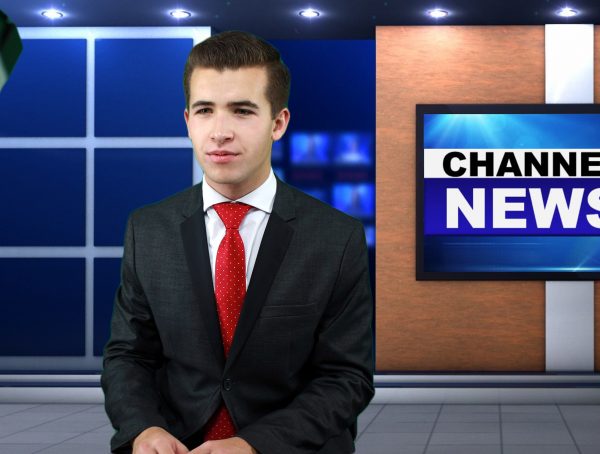As the COVID-19 vaccine is being rolled out around the world, and the governments are making a push to vaccinate as many people as quickly as possible, vaccine hesitancy has emerged as a new problem to combat. A poll made by the KFF COVID-19 Vaccine Monitor (March 15-22, 2021) surveyed people who were not willing to get vaccinated on the reasons why they are hesitant: 17% said that the vaccine is too new, that there is not enough information provided about it, and that they are unsure about the long-term effects.
Is it the journalists’ job to persuade their audience to get vaccinated? According to Chauncy Glover, anchor and reporter at ABC13, it is not the role of journalists to persuade but to expose the facts for the audience to be able to make their own informed choice.
“We are servants of the community. It is our job to make sure that people are informed with timely and accurate and correct information, so they can make their own decisions. We have to put it out there that these are the reasons why experts or why doctors say you should get this vaccine, look at the numbers of how it is disproportionally affecting Black and Brown communities, look at what goes into the trials, talking to experts about the distrust and about hesitancy and why,” Glover says.
He says it is important to acknowledge both the virus and vaccine availability do not affect every community in the same way. For example, African-American communities are wondering about the diversity in participants in the trials, and if it is safe for them.
“We had to address the trauma that these communities face, and we’re talking about centuries, they endured centuries of having their trust violated, even back to the Tuskegee Experiment — which was a government-regulated experiment — people remember that. Especially people in the Black community,” Glover explains.
According to him, the best way to inform people is to engage with them and gain the trust of their community: local journalists in this case proved to be much more efficient than national and international journalists. Local journalists already have the trust of their community, they share a bond that journalists working on a one-day topic within that same community would not have. Glover recalls his own experience having COVID-19: when he consulted with his doctor, he learned that taking Ibuprofen to make the pain go away was actually aggravating his COVID symptoms. He called his news director and executive producer right away, informing them about the effects of Ibuprofen so they could inform their community. People look for sources that are familiar and trustworthy to them.
On that same idea, doctors and experts have realized that people are more likely to be willing to get vaccinated if they know someone within their community who has been vaccinated: it creates a domino effect.
“The wait-and-see group maybe has concerns about ‘was this done too quickly’ or ‘will it hurt’ or ‘will I have side effects’ … but as more and more people in the U.S. see their friends, their family, their co-workers, other people in their community getting vaccinated it actually has this huge positive benefit, they are becoming more likely to get vaccinated,” explains Dr. Jennifer Kates, Senior Vice President and Director of Global Health & HIV Policy at the Kaiser Family Foundation.
She says that some people who persist in not wanting to take the vaccine are the same people who believed COVID-19 was a hoax. On one hand, some people still do not believe COVID-19 to be real or at least to be as bad as it is, therefore they do not feel the need to get vaccinated. On the other hand, it is not surprising to realize that people who doubted the existence of COVID-19 are the same people who now doubt its remedy: they just remain true to their overall skepticism.
Glover says that despite all of the reporters’ and experts’ efforts, there will always be doubts coming from the public, but journalists must keep reporting facts.
“I’ve been a journalist for more than 12 years and now more than ever it is important for journalists to know their stuff and to be accurate and to be studied and to want to have this eagerness to ask questions and this eagerness to learn more to make sure we are giving people the correct and accurate information. And I feel like more than ever people are turning to us,” says Glover.
Thoughts and quotes have been gathered during the Poynter Institute’s Conference: “Vaccine Hesitancy: What Journalists Need to Know,” with Joie Chen, Jennifer Kates, and Chauncy Glover.








